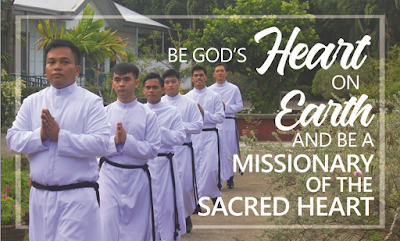Standing In The Side Of God.
Gospel Reflection - John 8, 31-42
Which country needs to be supported: Russia or Ukraine? Bong bong Marcos or Leni is more reliable and competent to lead the country? Is it Donald Trump or Joe Biden? Is it better to be a communist or a capitalist? Is it better to have a dictatorship or a democracy? These are issues that compel people both at domestically and overseas to engage in "seeking the truth, the right to liberate people from all oppression." One of the most recent stories I read was about Vietnam abstaining from voting in support of Russia against Ukraine. Since then, there have been numerous reactions. Similarly, here in the Philippines, people are debating who they should support for president and government officials in the following year. People may not be troubled excitedly to pick if there is true truth, but life always has two sides that ask people to choose where to stand in the middle of perplexity.In other words, people are unsure of which side or whom they should stand, believe in, be a disciple of, or be a slave of. (Believe in and submit to).
In today's Gospel, there is a conversation between Jesus and his contemporaries that I use as a source of reflection. When Jesus says, "Keep his words, and you will be his disciple," he means it. "We have never been slaves of anyone but Abraham," the response to Jesus is hardly inaudible. Let's have a look at it.
Firstly, Jesus invites people to "keep my words and you will be my disciple "in me," which will direct you to the truth and set you free." The word "in" is the first issue to consider. What does it mean to "live in"? It means "in," not "on the sides," "above," "below," or "in the center."
Make use of my previous experience. Before entering the novitiate, I remained rigid, aloof, so unfree, or I didn't feel at ease with myself. However, changes occurred along the road, transforming me into a better version as a result of the ecstasy experience. Since then, I've carried it on my shoulder and believe that "nothing can change the experience of mine" on the other side of "no talk, no encounter, no relationship." And now, as I previously mentioned at our LC's faith life sharing and the previous IC with the formator. I've stated that I immerse with some aspects of the community's dynamics, but not all. And there are times when I am not entirely engaged. That perfectly explains how it feels to be on the sides, above, below or center. But not In. These experiences could signify when a person is free, when they are self-immersed.
Let us now turn our attention to the people's reaction to Jesus. After Jesus tells people to believe in and accept his words, the people reply by saying, "We have never been slaves of anyone except Abraham" (Jn 8:33). These remarks show that some people do not wish to faith in Jesus. They don't want to be guided by anyone and prefer to stand on their own. If I were to sum it up in one word, it would be "close." People close their eyes when they see Jesus trying to stand with them. "You want to kill me because my words have no place in you," Jesus said as a result. People even seek to put an end to Jesus' life. They seek a way to close the life of Jesus.
There are many closed limits around the earth, as one may see by looking around. The United States constructed a long barrier to keep Mexico, Africa and central Africa out. They are also on the verge of accepting all people from third-world countries.
On the other hand, as Christians, we are given opportunities to practice serious prayer, abstinence, and charity during the Lenten season. We choose to remain steady and regulate our desire for sensation, satisfaction and gratification throughout this way. Against temptation and evil, we stand with Jesus. We shut the door to self-justification, and the space for impulsive desire in order to get close to Jesus.
 |
| Do I still cry for people rather than my own? |
Dear brothers, In the book What Makes Man Truly Human, the author points out that human beings are constrained by culture, age, education, illness, language, and background, implying that they are not completely free. However, Humans, on the other hand, have one feature that makes them free: "choice." The three young men (Shadrach, Meshach and Abednego) chose to stand on the side of God and against the king in our first reading; Jesus chose to stand on the side of compassion in last Sundays' Gospel to close the door on condemning the adultery woman; and the prodigal father chose to stand on the side the sonship.
As for me, if I am asked to "keep my words and live in me, let yourself free to be my disciple," what choice would I make?
Joseph Nguyễn Lê Thế Vương, MSC.










Comments
Post a Comment